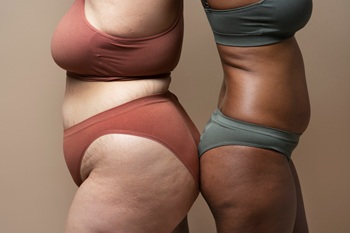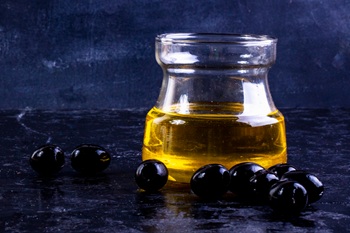What are the Benefits of Broccoli
It's unsurprising if your earliest memory of broccoli is of being forced to eat it by your parents. Guess what? They were right–broccoli is good for you! These tiny trees are packed with nutrients, and there are many delicious recipes to try, so you don't have to feel it's a punishment.
Broccoli belongs to the cruciferous vegetables family along with cabbage, kale, brussels sprouts and cauliflower. The pungent and bitter taste comes from its sulfur-containing compound called sulforaphane, which is responsible for all its benefits.
Nutritional composition
For 90g (1 cup) of raw broccoli, you get (1):
- Calories 35
- Protein 2.3g
- Carbs 5.6g
- Fiber 2.2g
- Fat 0.3g
- Vitamin C 91% of the daily value (DV)
- Vitamin K 77% of the DV
- Folate 15% of the DV.
The above list is a basic overview of the tons of nutrients in broccoli. Other key nutrients are:
- Vitamin C, K and A
- Potassium
- Calcium
- Iron.
Top 11 Benefits of Eating Broccoli
Aids Digestion
Broccoli is a good source of dietary fiber. It aids digestion and helps prevent constipation by improving bowel movement. It also improves gut health by promoting the growth of good microbes in the intestines.
Supports Immune System
Vitamin C strengthens the immune system and improves iron absorption and wound healing.
Promotes Heart Health
It supports heart health by lowering cholesterol and maintaining blood pressure (2).
Cancer-Fighting Properties
Broccoli contains glucosinolates, which the body can convert into substances that fight cancer. Sulforaphane may reduce inflammation to promote the growth and survival of cancer cells (2). The antioxidants in broccoli also reduce inflammation and neutralize cell damage caused by free radicals (3).
Kaempferol antioxidants in broccoli protect against heart disease, cancer, inflammation and allergies (1). Broccoli also contains indole-3 carbinol, which has anti-tumor properties (4). However, more research is needed to explore these cancer-fighting benefits.
Skin Health
Vitamin C boosts collagen production, which is good for skin elasticity. Antioxidants in broccoli also prevent skin damage and reduce wrinkles.
Also Read;
Weight Management
Broccoli is a good source of dietary fiber. High fiber content can keep you full. Try broccoli to keep you full all day when you are tempted to eat sugary treats.
Improves Bone Health
The calcium and Vitamin K in broccoli mean healthy bones and help prevent osteoporosis (2).
Improves Blood Sugar Levels
Broccoli helps manage blood sugar levels, and a study shows you're less likely to have type 2 diabetes if you eat food high in fiber (4). If you are diabetic, avoid overstuffing yourself because too much of anything can be a bad thing.
Lowers the Ageing Process
The antioxidants in broccoli may slow the ageing process. Slowing the ageing process helps reduce mental decline caused by ageing (3). Antioxidants protect you from oxidative stress.
Improves Eye Health
Vitamin A promotes eye health. Broccoli contains antioxidants such as lutein and zeaxanthin, which prevent oxidative stress in your eyes (3).
Fetal Health
If you're pregnant, broccoli should be your go-to because it's a good source of Vitamin B9, known as folate, essential in developing the fetal brain and spinal cord (3). While more research is needed, folate-rich foods ensure healthy babies.
What to remember
- Avoid consuming raw broccoli in excess because it contains goitrogens, which impair thyroid function; however, cooking destroys this enzyme (5). Allergies are rare, but in the case of allergies, symptoms are:

- Hives
- Swelling
- Difficulty breathing
Consult your doctor if you suspect any allergies.
- Vitamin K1 promotes blood clotting, so you might want to avoid it if you're taking blood thinners (1).
- Broccoli might give you gas or upset your bowels if you have irritable bowel syndrome (6).
- If you have kidney problems, phosphorus can build up in your blood when you consume broccoli. Consult your doctor before consuming broccoli.
How to Incorporate Broccoli into your Diet
- Wash the broccoli under cold running water if you're cooking, but keep it unwashed if you're not cooking (Only wash before eating).
- Store unwashed because wet broccoli develops molds and begins to wilt. Avoid dry storage and store at a temperature of 32F with a humidity of 95% (6). Broccoli can taste woody if you store it at room temperature for a long time.
- When buying, go for the tight and firm dark green broccoli. Avoid wilting or yellow florets. Broccoli has gone bad if it's yellowing, has enlarged buds, bruising or is decaying.
- Broccoli can be eaten raw or cooked. Take note that nutrients are most retained when you eat it raw. If you prefer cooked over raw, just know that steamed broccoli retains more nutrients than other cooking methods (3). Try boiling, microwaving, stir-frying or steaming.
- The florets and stems have more nutrients, so you might want to incorporate them. Avoid overcooking to maintain the crunch, and that's how you retain your nutrients.
Broccoli-Inspired Recipes
- Chilli garlic shrimp and broccoli
- Broccoli parmesan pasta
- Roasted broccoli and tomatoes
- Broccoli salad
- Broccoli cheddar soup
- Eggplant and broccolini parmesan.
You'll be surprised by how versatile broccoli is when it comes to recipes. You might be limited to cooking methods, but the nutrients are packed. Remember that you need a balanced diet rather than making every meal a broccoli-inspired one. You can't go wrong with the right quantity for your nutritional needs. If unsure, always consult your doctor or dietician for more information.
By: Monica Machera
Edited by: Damilola Elewa








Comments (0)